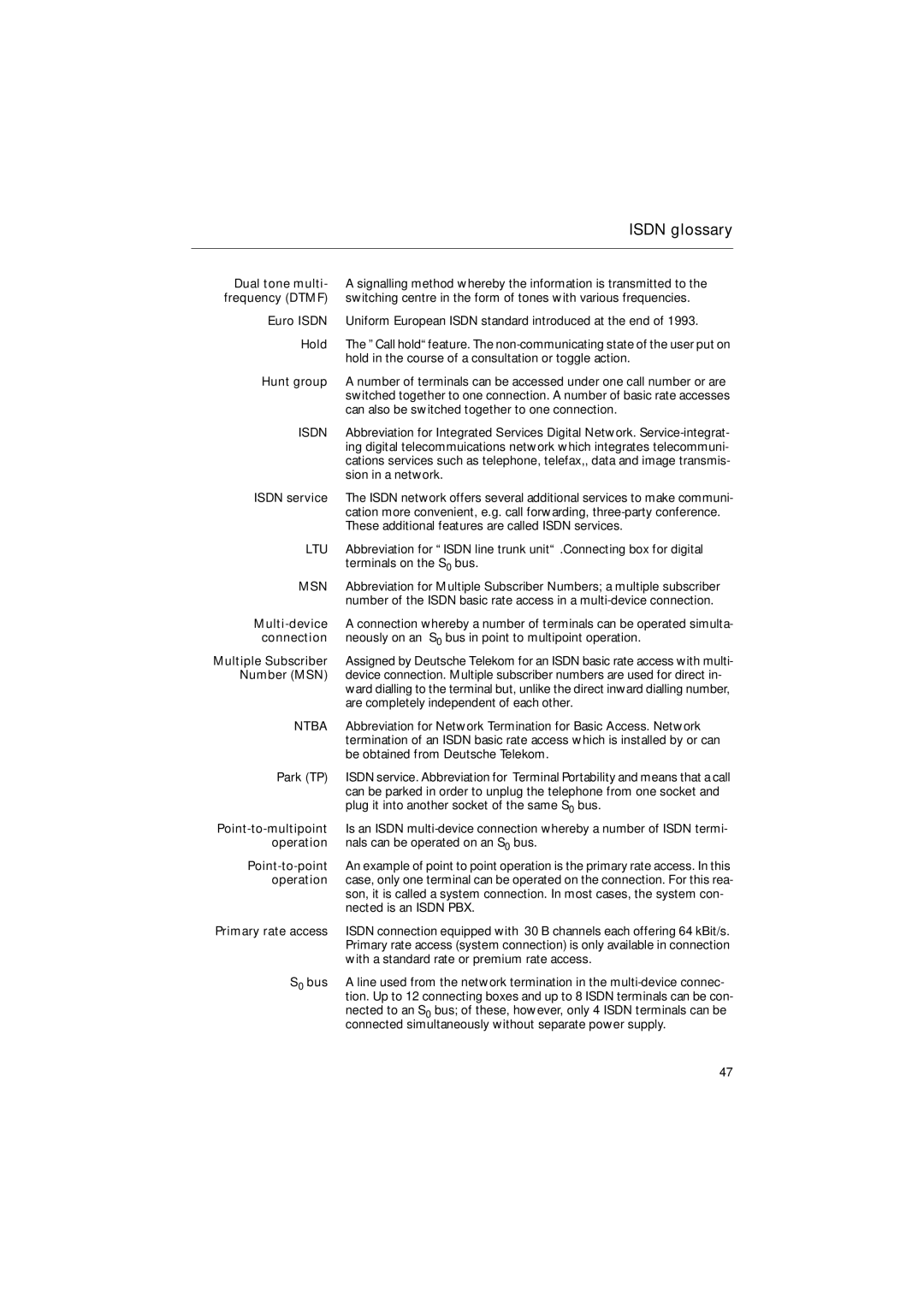ISDN glossary
Dual tone multi- A signalling method whereby the information is transmitted to the frequency (DTMF) switching centre in the form of tones with various frequencies.
Euro ISDN Uniform European ISDN standard introduced at the end of 1993.
Hold The ”Call hold“feature. The
Hunt group A number of terminals can be accessed under one call number or are switched together to one connection. A number of basic rate accesses can also be switched together to one connection.
ISDN Abbreviation for Integrated Services Digital Network.
ISDN service The ISDN network offers several additional services to make communi- cation more convenient, e.g. call forwarding,
LTU Abbreviation for “ISDN line trunk unit“ .Connecting box for digital terminals on the S0 bus.
MSN Abbreviation for Multiple Subscriber Numbers; a multiple subscriber number of the ISDN basic rate access in a
Multiple Subscriber Assigned by Deutsche Telekom for an ISDN basic rate access with multi- Number (MSN) device connection. Multiple subscriber numbers are used for direct in-
ward dialling to the terminal but, unlike the direct inward dialling number, are completely independent of each other.
NTBA Abbreviation for Network Termination for Basic Access. Network termination of an ISDN basic rate access which is installed by or can be obtained from Deutsche Telekom.
Park (TP) ISDN service. Abbreviation for Terminal Portability and means that a call can be parked in order to unplug the telephone from one socket and plug it into another socket of the same S0 bus.
son, it is called a system connection. In most cases, the system con- nected is an ISDN PBX.
Primary rate access ISDN connection equipped with 30 B channels each offering 64 kBit/s. Primary rate access (system connection) is only available in connection with a standard rate or premium rate access.
S0 bus A line used from the network termination in the
47
